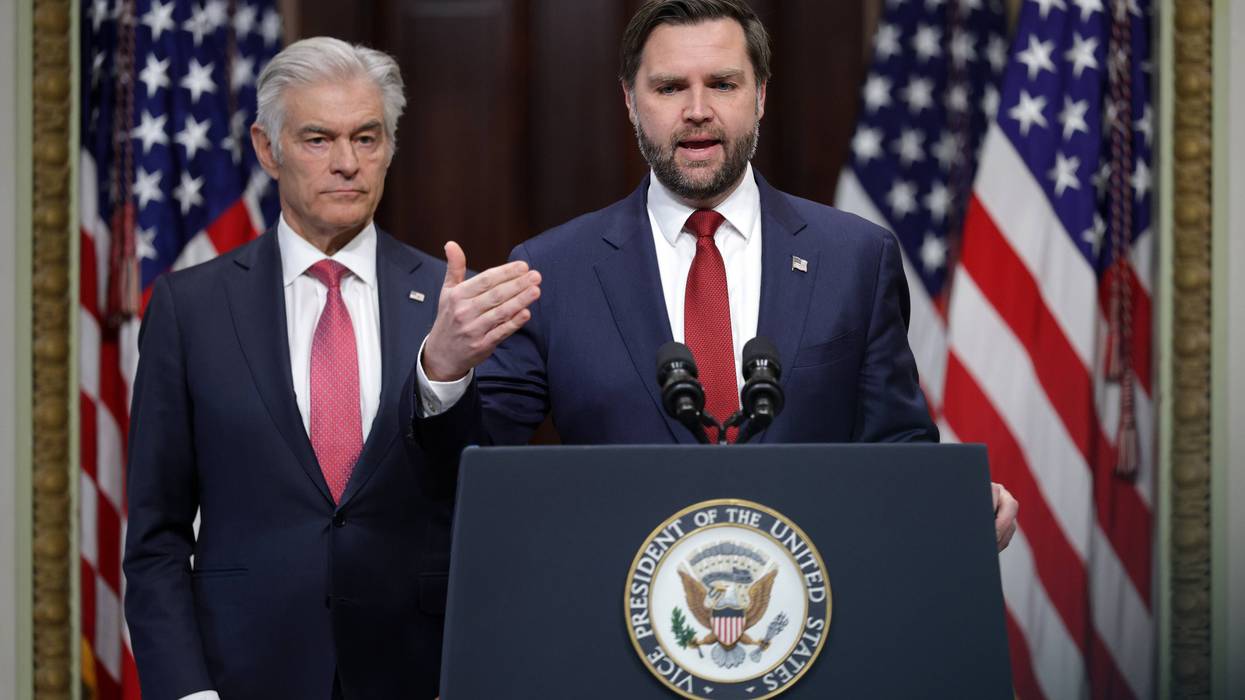January, 13 2012, 03:40pm EDT

Amnesty International Urges Caution as U.S. Restores Full Diplomatic Relations with Myanmar
Organization concerned full ties may lessen pressure for additional key steps to uphold human rights in Myanmar
WASHINGTON
Suzanne Nossel, Amnesty International USA's new executive director, issued the following statement in response to announcement that the United States is restoring full diplomatic relations with Myanmar:
"Today's release of some of Myanmar's political prisoners was the result of concerted, sustained pressure by the international community and bold leadership by the United States. While we welcome the releases, thousands more remain behind bars. Pressure for progress on the remaining prisoners and other human rights concerns in Myanmar must not abate. The risk is that the restoration of ties between the two countries may be premature and could weaken the pressure to address critical areas of unfinished business in addressing serious human rights abuses in Myanmar.
"The United States and the international community must utilize the renewal of diplomatic ties, and the ensuing increased engagement with the government of Myanmar, as an opening to continue to push for the release of all prisoners of conscience. Additionally, they must press for meaningful improvement in the treatment of ethnic minorities-- including in the Kayin, Kachin, and Shan States, where war crimes and crimes against humanity are being committed--and for broader respect for the fundamental rights of all people in Myanmar. The United States has demonstrated that engagement combined with pressure can deliver important breakthroughs, and must sustain both elements of its approach.
"Amnesty International reiterates its call to the United States and the international community to ensure a credible investigation and accountability relating to atrocities against ethnic civilians in Myanmar and to pressure Myanmar officials to address the situation in ethnic minority areas and other human rights concerns."
Amnesty International is a Nobel Peace Prize-winning grassroots activist organization with more than 3 million supporters, activists and volunteers in more than 150 countries campaigning for human rights worldwide. The organization investigates and exposes abuses, educates and mobilizes the public and works to protect people wherever justice, freedom and dignity are denied.
Amnesty International is a worldwide movement of people who campaign for internationally recognized human rights for all. Our supporters are outraged by human rights abuses but inspired by hope for a better world - so we work to improve human rights through campaigning and international solidarity. We have more than 2.2 million members and subscribers in more than 150 countries and regions and we coordinate this support to act for justice on a wide range of issues.
LATEST NEWS
Cuba Says Men on Florida Boat 'Intended to Carry Out an Infiltration for Terrorist Purposes'
The Cuban Interior Ministry said it detained seven people involved in the plot, including one who "had allegedly been sent from the United States to facilitate the landing and reception of the armed group."
Feb 26, 2026
The Cuban government said Wednesday that the men on a Florida-registered boat who opened fire on Cuban soldiers in the island's territorial waters were bent on carrying out "an infiltration for terrorist purposes."
In a statement following news that Cuban forces had killed four people on the boat, the besieged Caribbean nation's Interior Ministry said the vessel was carrying 10 men, all "Cuban nationals residing in the United States."
The ministry said it seized assault rifles, explosives, body armor, and other items from the boat and identified seven of its passengers, six of whom were detained. Four men on the boat—which, according to reports, was last purchased in 2022—were killed in the gunfight with Cuban soldiers, who had reportedly "approached the vessel for identification."
Cuban authorities also said another individual, Duniel Hernández Santos, was arrested "within national territory." The Interior Ministry said Santos "had allegedly been sent from the United States to facilitate the landing and reception of the armed group and has confessed to his role."
"The investigation remains ongoing until all facts have been fully established," the ministry said.
Participants in Foiled Armed Infiltration in Villa Clara Identified
As part of the ongoing investigation into the armed attack against a patrol vessel of the Border Guard Troops of the Ministry of the Interior, in the northeastern area of the El Pino channel, at Cayo Falcones,… pic.twitter.com/s9IFmUkqvk
— Cuban Embassy in US (@EmbaCubaUS) February 26, 2026
The deadly incident came as Cuba continued to reel from the Trump administration's recent intensification of decades-long economic warfare against the island. The administration is "actively seeking regime change in Cuba," according to Wall Street Journal reporting from last month.
Wednesday's incident called to the minds of observers past efforts, backed by the US, to topple the Cuban government, from the failed Bay of Pigs invasion to Operation Mongoose.
US Secretary of State Marco Rubio, the son of Cuban immigrants, denied that any American government personnel were involved in the incident and said it was under investigation.
"We're going to find out exactly what happened here, and then we'll respond accordingly," said Rubio, a longtime supporter of regime change in Cuba. "It is highly unusual to see shootouts in open sea like that. It's not something that happens every day. It's something, frankly, that hasn't happened with Cuba in a very long time."
Keep ReadingShow Less
Florida Republicans Ripped for Advancing Show-Me-Your-Papers Voter ID Bill
"This wave of anti-voter legislation is advancing amid ongoing abuses of power that pose unprecedented threats to American democracy," said the ACLU of Florida's executive director.
Feb 25, 2026
With 251 days until the US general election, Florida Republicans on Wednesday passed a show-me-your-papers bill that opponents warn could prevent thousands of eligible state voters from registering if they don't have a valid birth certificate or passport, or their documents don't reflect a name change.
"Midterm elections are coming later this year—and they're a crucial test of our democracy," ACLU of Florida executive director Bacardi Jackson said in a Wednesday statement. "Moments like this bring new voters into the process and give communities the power to hold leaders accountable—exactly what a healthy democracy demands. But right now, some lawmakers are pushing an anti-voter bill that could shut thousands of eligible people out of our elections and discourage the enrollment of new eligible voters."
The Florida House of Representatives on Wednesday voted 83-31 on HB 991, sponsored by Rep. Jenna Persons-Mulicka (R-78).
"The Florida House version of the bill would only go into effect in January 2027. But under a similar bill set for consideration in the Florida Senate, the new rules would take effect this July, before the November midterm elections," Democracy Docket detailed. "A House committee already gave preliminary approval to the bill earlier this month."
Jackson highlighted that "many eligible voters don't have ready access to an unexpired passport or an original or certified copy of their birth certificate because of logistical and financial barriers. More than 8 million Floridians do not have a valid passport, and because many women legally change their name upon marriage, more than 4.7 million women in Florida do not have a birth certificate reflecting their current legal name—documents this bill would require."
"At the same time, this proposal would eliminate current, valid forms of ID proving eligibility at the polls, including student IDs, retirement center IDs, and public assistance IDs," she warned. "Taken together, these changes are not neutral or harmless—they would fall hardest on low-income voters, students, seniors, women, and Black and brown Floridians."
The ACLU leader also argued that "context matters. This wave of anti-voter legislation is advancing amid ongoing abuses of power that pose unprecedented threats to American democracy." She specifically pointed to the Safeguard American Voter Eligibility (SAVE) America Act that the GOP-controlled US House of Representatives passed earlier this month.
"We're seeing parallel efforts nationally to make it harder for eligible voters to cast their ballots—including the SAVE Act being debated in Congress right now—and Florida is leading the way down this authoritarian path," she said. The federal bill is less likely to get through the US Senate, whose filibuster rule requires the GOP to get some Democratic support to advance most legislation.
"What makes this even more galling is that lawmakers don't have to do any of this at all—they are choosing to," said Jackson. "They could enact reforms making it easier for eligible Floridians to vote and have their voices be heard, like the Harry T. and Harriette V. Moore Florida Voting Rights Act, HB 1419/SB 1598. Instead, they are fast-tracking legislation that would make voting harder for eligible Floridians and silence communities that deserve to be heard."
"We will not stand by while politicians in power seek to entrench their power at the expense of the people's rights," she vowed. "We will keep organizing and fighting to reclaim and defend our democracy—because every eligible Floridian deserves to vote."
Meanwhile, at the federal level, Senate Majority Leader John Thune (R-SD) plans to hold a vote on the SAVE America Act this week. President Donald Trump used his State of the Union address on Tuesday night to increase pressure on Congress to send the bill to his desk.
"I'm asking you to approve the SAVE America Act to stop illegal aliens and others who are unpermitted persons from voting in our sacred American elections—that cheating is rampant in our elections," Trump said. "It's very simple: All voters must show voter ID. All voters must show proof of citizenship in order to vote. And no more crooked mail-in ballots except for illness, disability, military, or travel. None."
Experts have long countered such GOP claims by emphasizing that, as the Brennan Center for Justice put it in a pair of blog posts, "noncitizen voting is already illegal" and "extensive research reveals that fraud is very rare."
Michelle Kanter Cohen, policy director and senior counsel for the national voting rights group Fair Elections Center, told Democracy Docket on Wednesday that Florida's voter suppression bill "would do a lot of the same things," as the SAVE America Act, "in terms of preventing American citizens from voting who don't have access to documentary proof of citizenship documents."
"The last thing someone who is on a path to citizenship would want to do is to jeopardize their naturalization by voting illegally," Kanter Cohen said. "And so people don't do that. That's not something that's happening because it has such dire consequences."
Keep ReadingShow Less
'Despicable': Vance, Oz Announce Freeze on Some Medicaid Funding for Minnesota
"The Constitution clearly gives Congress the power to spend taxpayer funds, and no law allows the president to halt if he feels some US states aren’t being 'good stewards' of the money," said one critic.
Feb 25, 2026
US Vice President JD Vance said Wednesday that the Trump administration will pause some Medicaid funding for Minnesota over fraud concerns—without offering any guarantees that the suspension will not adversely impact the more than 1 million Minnesotans who depend upon the key healthcare program.
"We're announcing today that we have decided to temporarily halt certain amounts of Medicaid funding that is going to the state of Minnesota in order to ensure that the state of Minnesota takes its obligations seriously to be good stewards of the American people's tax money," Vance said at a White House press conference with Centers for Medicare and Medicaid Services (CMS) Administrator Mehmet Oz.
"Now what is this gonna mean?" Vance continued. "What this means is that, first of all, the providers on the ground in Minnesota have actually already been paid... What we're doing is we are stopping the federal payments that will go to the state government until the state government takes it obligations seriously to stop the fraud that's being perpetrated."
They already targeted SNAP in Minnesota. They’ve killed two Minnesotans and injured or kidnapped hundreds more. Now they’re stealing their Medicaid. They’re going to deny people healthcare because of a YouTube video about a Somali daycare scam that wasn’t even true.
[image or embed]
— Kelly (@broadwaybabyto.bsky.social) February 25, 2026 at 3:05 PM
Oz demanded that Democratic Minnesota Gov. Tim Walz determine "who these providers are; make sure they're not already in trouble for doing bad stuff, and then reevaluate all the current providers to make sure they're supposed to be able to provide these services."
Responding to Oz's remarks, Gaia Leadership Project founder Elizabeth Cronise McLaughlin said on Bluesky, "So Minnesota is supposed to review every appointment by a Medicaid recipient with every doctor to get funds already lawfully allocated to the state?"
Asked by a reporter how he intends to ensure that the funding pause "doesn't impact the people who are enrolled in Medicaid," Vance said he is "worried about the justice of it all."
"I think it's offensive that American taxpayers pay into these programs and they're defrauded... and it's really sad that American children who need these services are unable to get them, because they're going to fraudsters," Vance replied.
"Look, we're certainly gonna make sure that our anti-fraud efforts go after the fraudsters and not after anybody who actually benefits from these services," he continued. "But I actually think the question is a little off, in a way, because the problem is not going after the fraud, the problem is that these programs are being defrauded to begin with."
"Our social safety net will disappear unless we take fraud more seriously," added the vice president, whose boss, President Donald Trump, last year signed into law the biggest cuts to Medicaid and the Supplemental Nutrition Assistance Program, or SNAP, in the nation's history as part of the One Big Beautiful Bill Act.
Medicaid is the primary healthcare safety net for lower-income Americans, with nearly 70 million people enrolled nationwide at the end of last year.
While federal prosecutors are investigating Minnesota’s Medicaid system—specifically, 14 high-risk service programs such as housing support and personal-care services—on suspicion of billions of dollars in fraudulent billings since 2018, and dozens of people have been convicted of stealing public money through the state’s social services system, critics noted that Congress, not the president, has the power of the purse.
Some observers noted that Trump has already targeted Minnesota—which voted against him all three times he ran for president—with his deadly crackdown on undocumented immigrants and their defenders and racist attacks on Somali immigrants, including Congresswoman Ilhan Omar (D-Minn.).
The Medicaid freeze follows the Trump administration's $10 billion cut in federal childcare funding to five Democrat-led states, including Minnesota, last month—a move that opponents argue punishes working families who committed no fraud.
University of Illinois professor Nicholas Grossman called the Medicaid pause "taxation without representation."
"The Constitution clearly gives Congress the power to spend taxpayer funds, and no law allows the president to halt if he feels some US states aren’t being 'good stewards' of the money," he said on Bluesky. "In case there’s any confusion on this, the Impoundment Control Act forbids it."
"The people of Minnesota vote for representatives to Congress," Grossman added. "Minnesota representatives and senators were in DC, representing their constituents, when Congress passed laws using proper procedure that allocated Medicaid funding. The president breaking those laws violates the fundamental compact of the republic."
Oz on Wednesday also announced "a six-month national moratorium blocking all new enrollments for durable medical equipment—prosthesis, orthotics—supplies across the board" in the name of fighting fraud. The move targets suppliers, not individual Medicaid beneficiaries.
This from Oz, a promoter of privatized Medicare Advantage programs, which are notorious for overcharging taxpayers and denying patients necessary care. The CMS under Oz increased federal funding for Medicare Advantage plans by more than $25 billion for 2026.
As Common Dreams recently reported, United Health Group (UHG), one of the country's largest for-profit health insurance companies, has been the leading beneficiary of a long-running Medicare Advantage fraud scheme that the Medicare Payment Advisory Commission—an independent, nonpartisan legislative branch agency—warned could cost US taxpayers $1.2 trillion over the next decade.
Some critics said that if Trump really cared about fraud, he'd go after companies like UHG—and stop pardoning so many convicted criminals who committed billions of dollars worth of fraud.
"These guys are despicable," Michigan State University professor Brendan Cantwell said Wednesday in response to Vance and Oz's announcement.
Robert Weissman, co-president of the consumer advocacy group Public Citizen, said in a statement Wednesday that “Medicaid fraud is a serious problem that requires cracking down on fraudsters—not patients."
Weissman continued:
This administration’s anti-fraud rhetoric is itself a fraud. In fact, the administration has gutted anti-fraud government agencies and programs and let fraudsters off the hook. It has issued record-breaking pardons to fraudsters; sought to eliminate the most important anti-consumer fraud agency, the Consumer Financial Protection Bureau; eviscerated the corps of inspectors general whose job is to root out waste, fraud, and abuses; and dropped dozens of fraud and fraud-related investigations against large corporations.
“The Trump administration suspension of Medicaid funding in Minnesota is a bad-faith, punitive, and shameful measure that will punish people in Minnesota as part of the same deceptive story that the Trump administration has told to justify the outrageous [Immigration and Customs Enforcement] invasion of the state," Weissman added.
Keep ReadingShow Less
Most Popular


